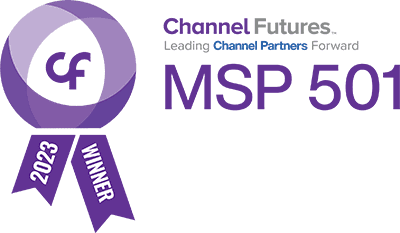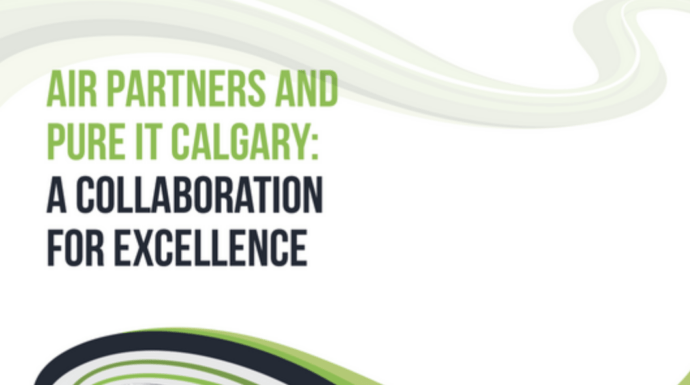Information Systems Management for Calgary Corporations: A Focused Overview
In today’s rapidly evolving technological landscape, corporations in Calgary and across Alberta seek effective Information Systems Management solutions to stay competitive and meet their business objectives. IT infrastructure’s increasing complexity and interdependency have necessitated efficient management, strategic planning, and a strong focus on cybersecurity.
One company that has proven to be an effective solution provider in this arena is Pure IT. With a sterling reputation for providing top-notch outsourced IT services and support to various industries, Pure IT has become the go-to Information Systems Management company for corporations in Calgary and across Alberta. Our team of skilled professionals understands technology’s crucial role in helping organizations achieve their goals and is committed to delivering innovative, tailored solutions to meet each client’s unique needs.
Key Takeaways
- Effective Information Systems Management is essential for Calgary corporations in the dynamic technological landscape.
- Pure IT has established itself as the top provider of outsourced IT services and support for Calgary and Southern Alberta organizations.
- Focused on client success, Pure IT delivers innovative, tailored solutions that align with each organization’s core business objectives.
Overview of Information Systems Management
In today’s highly competitive business environment, effective management of information systems (IS) is crucial for the success of businesses, particularly in Calgary. Information systems facilitate business transactions and decision-making at all levels of management. As a result, the importance of understanding and implementing sound IS management practices cannot be overstated.
Management Information Systems (MIS) are combinations of principles, theories, and practices that play a fundamental role in organizations, facilitating planning and decision-making processes. These systems provide essential information for personnel at various levels of management, enabling them to perform their respective jobs efficiently.
MIS can be divided into three primary aspects: strategic, tactical, and operational. Each of these aspects significantly impacts managerial decision processes across a range of business contexts. By utilizing MIS effectively, organizations can increase profitability, improve customer service, manage daily operations, and drive a competitive market advantage.
Some critical components of a successful MIS include:
- Data Storage and Retrieval – Robust systems for capturing, storing, searching, and disseminating information to various stakeholders within an organization
- Information Design – Streamlined and user-friendly interfaces that allow for efficient access and utilization of information
- Technology-Enabled Business Processes – The implementation of technology to enhance and automate critical business functions
Calgary-based organizations can benefit from incorporating MIS practices that align with their unique needs and objectives. To excel in the fast-paced marketplace, staying informed about developments in the field of information systems and adapting best practices is vital in achieving business goals.
By actively learning about and investing in information systems management, Calgary corporations can ensure they are well-positioned in their respective industries and better equipped to face the challenges of our constantly evolving business landscape.
Strategic Planning for IT in Calgary Corporations
Aligning IT With Business Goals
In today’s competitive business landscape, Calgary corporations must align their IT investments with their overall business goals. As a part of strategic planning, we must assess our IT infrastructure’s current state, identify improvement areas, and develop a roadmap for aligning IT initiatives with our organizational objectives.
One approach to achieve this alignment is by adopting the SMART framework, which stands for Specific, Measurable, Achievable, Relevant, and Time-bound. Here’s a brief overview:
- Specific: Clearly define and articulate IT objectives that support business goals
- Measurable: Establish performance indicators to monitor and evaluate progress
- Achievable: Ensure that IT objectives are realistic and attainable with available resources
- Relevant: Ensure IT objectives align with and contribute to the accomplishment of business goals
- Time-bound: Set a deadline for achieving the IT objective, promoting accountability, and encouraging timely execution
Budgeting and Resource Allocation
Once we have identified and aligned our IT objectives with our business goals, the next step is to allocate appropriate resources and budget for the successful execution of IT initiatives. A few key aspects to consider in budgeting and resource allocation are:
- Hardware and Software Costs: Estimate the costs of acquiring and maintaining the necessary hardware and software for the planned IT initiatives, including servers, storage devices, and software licenses.
- Human Resources: Allocate sufficient resources to hire, train, and retain the right talent to implement and manage IT initiatives successfully.
- Third-Party Support: Evaluate the need for external IT service providers, such as Pure IT, known for delivering reliable and secure enterprise IT solutions in Calgary. This may include managed services, system administration, and auditing.
- Consultancy and Training: Allocate budget for professional consultations and employee training—essential for staying up-to-date on the latest industry trends and technologies in today’s rapidly evolving digital landscape.
We can develop a well-rounded and efficient IT budget and resource allocation plan by carefully considering these aspects. This will ultimately pave the way for Calgary corporations to achieve their desired business outcomes and drive sustainable growth.
Information Systems Governance
Policies and Standards
As Information Systems Management continues to play a critical role in the success of Calgary corporations, having a solid Information Systems Governance (ISG) strategy ensures that businesses stay competitive and up-to-date with evolving technologies. To achieve this, it’s essential to establish clear policies and standards that can guide the process of decision-making and resource allocation. Some key elements to consider when developing policies and standards include data privacy regulations, IT infrastructure requirements, and employees’ access to sensitive information.
Furthermore, maintaining consistency and adherence to these policies promotes efficient business operations. Corporations in Calgary should invest in training and resources to ensure their staff understands and complies with the set policies and standards. Communication plays a crucial role in executing these policies, so it’s essential to have a clear communication plan to address any concerns or questions arising during implementation.
Compliance and Risk Management
Compliance and risk management are critical aspects of Information Systems Governance. In an ever-changing technological landscape, Calgary corporations must stay current on relevant industry regulations and continually assess their information systems for potential risks. This includes adherence to standardized data protection legislation, such as the Personal Information Protection and Electronic Documents Act (PIPEDA), which governs the handling of personal data by businesses in Canada.
To effectively manage compliance and risk, corporations must develop strategies and processes that help identify, assess, and mitigate risks associated with their information systems. Some common strategies and measures include:
- Performing regular audits to ensure adherence to policies and standards.
- Implementing robust access control mechanisms to prevent unauthorized access to sensitive data.
- Employing encryption and other security measures to protect data from unauthorized access and cyber threats.
- Conducting routine vulnerability assessments and penetration tests to identify and remediate potential threats.
In summary, Information Systems Governance is vital in maintaining secure, efficient, and compliant business operations for Calgary corporations. By establishing and upholding clear policies and standards and proactively managing compliance and risk, organizations can enhance their overall information systems management and ultimately contribute to their long-term success.
IT Service Management
Service Delivery and Support
To effectively manage information systems for Calgary corporations, we focus on providing top-tier service delivery and support. This includes ensuring data is reliable, accurate, accessible, and secure. By utilizing advanced strategies such as data mining and analytics, we help businesses gain actionable insights that drive decision-making and strategy development.
Our service delivery and support offerings include:
- Managed IT Services: We collaborate with excellent providers like Pure IT to cater to various businesses and organizations’ unique needs in the Calgary area.
- Cybersecurity: To safeguard business information and operations, we offer comprehensive security services that respond promptly in case of a breach or breakdown. Techworks is one of the providers that focus on selecting the best security solutions for our clients.
- IT Consulting: Our expertise in IT management ensures that your business benefits from the support of a highly responsive team of professionals, allowing you to concentrate on your core operations.
IT Infrastructure Library (ITIL) Framework
We recognize the importance of following a globally accepted framework for IT service management and adopting the IT Infrastructure Library (ITIL) framework for all our clients in Calgary. The ITIL framework guides the organization, implementation, and ongoing management of IT services, helping businesses improve their operational efficiency and bottom line.
These are some main components of ITIL that we focus on:
- Service Strategy: We assess the business needs and goals to build a strategic plan for delivering IT services that align with the organization’s objectives.
- Service Design: We create tailor-made IT services and infrastructures that cater to the specific requirements of each business.
- Service Transition: Our team ensures a smooth implementation and integration of new and modified services into the existing IT environment with minimal service disruption.
- Service Operation: We deliver effective and efficient IT services, including ongoing support and proactive monitoring to ensure optimal system performance.
- Continual Service Improvement: We regularly evaluate our service offerings and continuously seek ways to enhance the quality of IT services, driving continuous improvement for businesses.
In summary, our Information Systems Management services for Calgary corporations are centered around professional service delivery and support and closely adhere to the ITIL framework. This allows us to develop and maintain a robust information technology infrastructure that meets the diverse needs of businesses in the region.
Data Management and Analysis
Managing and analyzing information is crucial for Calgary corporations in the era of big data. This section will explore two key aspects of data management and analysis: Business Intelligence and Data Security and Privacy.
Business Intelligence
Business Intelligence (BI) is the process of transforming raw data into meaningful insights for making informed decisions. Corporations leverage BI tools in Calgary to optimize operations, enhance customer experiences, and drive innovation.
For instance, Data, Analytics & Information Access (DA&IA) in the City of Calgary provides Geographic Information System (GIS) platforms, asset drafting, base maps, and open data hubs to help administration, council, and citizens make data-driven decisions. With the integration of Artificial Intelligence (AI), corporations can further enhance their analytical capabilities, improving key performance indicators such as order-delivery times, response times, and time-to-market.
Some of the most popular BI tools used by Calgary corporations include:
- Power BI: A Microsoft product providing interactive data visualization and reporting capabilities.
- Tableau: A versatile data visualization tool to easily create dashboards and reports.
- Qlik Sense: A self-service data analytics platform for creating and sharing data-driven insights.
Data Security and Privacy
As corporations in Calgary expand their data management and analysis capabilities, maintaining data security and protecting privacy becomes increasingly important. Strong security measures are essential to prevent data breaches, unauthorized access, and misuse of sensitive information.
Organizations must adhere to regulatory frameworks and best practices for ensuring data protection. This can be achieved through:
- Data Encryption: Safeguarding data-in-transit and data-at-rest using advanced encryption methods.
- Access Control: Implementing role-based access controls for data, applications, and network infrastructure.
- Data Backup and Disaster Recovery: Establishing regular data backup schedules and disaster recovery plans to secure data from unexpected events.
In conclusion, effective data management and analysis are fundamental aspects of information systems management for Calgary corporations. By investing in Business Intelligence tools and embracing stringent data security and privacy measures, companies can make better decisions and foster long-term success in today’s competitive market.
Project Management and Implementation
This section’ll discuss essential aspects of project management and implementation for Calgary corporations that focus on information systems management. Approaches like Agile and Waterfall methodologies are crucial for success. Moreover, incorporating change management strategies into the process ensures a smooth transition throughout the project stages.
Agile and Waterfall Methodologies
Information systems management projects often rely on two primary methods for planning and execution: Agile and Waterfall. These methodologies support project teams in organizing tasks, tracking progress, and ensuring successful completion.
- Agile: This methodology is a more adaptive and flexible approach to project management. Agile focuses on iterative progress and encourages continuous feedback, enabling teams to respond to changes or client requests quickly. Here are some key aspects of Agile project management:
- Incremental development
- Regular team communication
- Emphasis on collaboration
- Continuous improvement and adaptation
- Waterfall: The Waterfall methodology is a linear, sequential approach that follows a set of pre-defined steps, including requirements gathering, design, implementation, testing, and deployment. The Waterfall model is ideal for projects with well-defined requirements and minimal change scope. Some notable features include:
- Clear project milestones
- In-depth documentation
- Extensive upfront planning
- Distinct project phases
Both methodologies offer unique advantages for information systems management projects in Calgary corporations. Selecting the most appropriate approach based on project requirements, resources, and timelines is crucial.
Change Management
Change management is a critical component of successful project management and implementation. As corporations in Calgary leverage information systems to improve productivity, it’s vital to anticipate potential challenges during the project’s execution and address them with efficient strategies. Here are some key principles to consider:
- Stakeholder Engagement: Involve all relevant stakeholders, including employees, managers, and clients, to gain their support and commitment. This engagement creates a sense of ownership and helps identify potential issues early in the process.
- Communication: Clear and consistent communication across all levels of the organization is vital, especially when implementing new systems or procedures. This includes sharing project objectives progress updates, and addressing concerns or feedback from team members.
- Training and Support: Provide employees comprehensive training for new systems or tools and offer ongoing support to ensure a smooth transition. This approach reinforces adopting new processes and helps address potential performance gaps.
By incorporating change management strategies into the project management and implementation process, Calgary corporations can minimize resistance to change and enhance the success of their information systems projects.
Emerging Technologies and Innovation
As we examine the landscape of information systems management for Calgary corporations, we must consider the emerging technologies and innovations shaping the industry. This section will focus on Cloud Computing and the Internet of Things (IoT).
Cloud Computing
Cloud computing has become a cornerstone for modern information systems management. Businesses in Calgary are increasingly adopting cloud-based solutions to reduce costs, increase flexibility, and access advanced computing capabilities. Some benefits that we can observe from cloud computing adoption are:
- Scalability: Companies can easily adjust their IT infrastructure according to their needs and pay only for the services they use.
- Cost savings: With cloud computing, organizations can eliminate expensive hardware and maintenance costs, shifting to a more manageable subscription-based pricing model.
- Enhanced collaboration: The cloud facilitates access to information across various devices and locations, streamlining teamwork and improving productivity.
Moreover, substantial investments from governmental agencies like Alberta Innovates bolstered Alberta’s technology ecosystem. These investments contribute to creating jobs and strengthening the province’s technology sector, both of which directly impact local businesses’ capacity to leverage cloud computing solutions.
Internet of Things (IoT)
The Internet of Things (IoT) is another crucial area of innovation in information systems management. IoT refers to the interconnection of everyday objects through the internet, enabling them to send and receive data. Calgary corporations stand to benefit from integrating IoT solutions into their operations, particularly in the areas of:
- Smart Manufacturing: Incorporating IoT devices within manufacturing processes can optimize production lines, improve inventory management, and enhance efficiency.
- Asset Tracking: IoT-enabled sensors can enable real-time monitoring of valuable assets, reducing losses and increasing transparency across the supply chain.
- Energy Management: Smart energy solutions can assist Calgary businesses in monitoring and controlling energy consumption, resulting in cost savings and a reduced environmental footprint.
The Alberta government’s Technology and Innovation Strategy provides ample opportunities for businesses within the province to develop and adopt these cutting-edge technologies. Through targeted investments and policies, Calgary’s corporations can continue to grow and stay at the forefront of strategic information systems management.
Cybersecurity in Corporate Settings
As cybersecurity threats continue to evolve, corporations in Calgary must implement effective threat assessment and incident response planning strategies. We will provide an overview of how these strategies work and how they can be tailored to meet the specific needs of various industries.
Threat Assessment
In cybersecurity, threat assessment identifies potential risks and vulnerabilities within an organization’s information systems. We use a risk-based approach that evaluates the likelihood and impact of various threats while considering the unique aspects of each industry. Calgary businesses, such as those in the oil and gas sector, construction, law firms, and accounting industries, may face specific challenges that require customized threat assessment strategies.
To help corporations navigate this complex process, we recommend the following steps:
- Identify Assets: Understand the critical information systems and data that require protection.
- Evaluate Vulnerabilities: Assess the weaknesses in an organization’s systems and procedures that potential threats could exploit.
- Measure Risks: Quantify the likelihood and impact of various threats to prioritize resources and response efforts.
- Develop Mitigation Strategies: Implement appropriate safeguards and controls to minimize the risk from identified threats.
By thoroughly assessing threats, corporations can ensure they are proactively addressing potential security risks and safeguarding their IT infrastructure.
Incident Response Planning
A well-defined incident response plan (IRP) is vital to a corporation’s cybersecurity strategy. It guides organizations through detecting, containing, and recovering from security breaches, enabling them to minimize the potential damage to their systems and reputation promptly. Calgary corporations should develop IRPs tailored to their specific industry needs, with a focus on the following key elements:
- Preparation: Assemble an incident response team with representatives from all relevant departments, including IT, human resources, legal, and public relations. Ensure that team members receive regular training and remain up-to-date on the latest threats and response strategies.
- Detection and Analysis: Implement security monitoring tools and processes to identify potential breaches in real time. Encourage employees to report any suspicious activities or incidents.
- Containment: Take immediate action to stop the intrusion, isolate affected systems, and prevent further spread within the network.
- Eradication: Identify and remove the breach’s root cause, addressing any exploited vulnerabilities.
- Recovery: Restore affected systems and data to normal functioning, taking appropriate measures to prevent future incidents.
- Lessons Learned: Conduct a post-incident review to evaluate the effectiveness of the response, identify areas needing improvement, and update the IRP accordingly.
By incorporating threat assessment and incident response planning into their information systems management practices, Calgary corporations can better protect themselves from cybersecurity threats and maintain the integrity of their IT infrastructure.
Employee Training and Development
Calgary corporations must prioritize employee training and development in this competitive business environment. By investing in their workforce, organizations can cultivate a strategic learning and development culture supporting performance improvement and addressing employee career goals.
We understand that employee learning is essential to any organization’s success. As such, our approach involves creating customized training programs tailored to each company’s unique needs. Through a consultative needs analysis, we design workshops and courses reflecting industry insights, expert faculty knowledge, and real-world examples.
Our training programs aim to build employees’ skills and capacity for success at every level. This includes leadership development courses emphasizing communication, problem-solving, and decision-making abilities. In addition, our team-building events foster collaboration and cooperation among colleagues while targeting essential skills like conflict resolution and interpersonal communication.
To accommodate a variety of learning styles and preferences, we offer a mix of traditional classroom training, online learning, and collaborative sessions. Our ultimate goal is to create an environment conducive to continuous learning and skill development. By combining these various methods, we ensure flexibility and accessibility for all employees.
Below is a brief overview of some popular training courses we offer:
- Dealing with Difficult People: Enhancing interpersonal skills and conflict resolution techniques.
- Information Systems Management: Understanding current trends in technology and strategies for successful implementation.
- Project Management: Acquiring the skills to plan, execute, and close projects efficiently and effectively.
- Change Management: Learning to navigate and lead organizational change with minimal disruption.
In summary, providing comprehensive employee training and development helps Calgary corporations stay competitive and fosters a culture of continuous growth and improvement. Through customized programs tailored to each organization’s unique needs, we aim to empower employees and contribute to the success of local businesses.
Vendor Management and Outsourcing
Outsourcing IT services for your Calgary corporation can contribute to streamlined operations and reduced costs. This section will explore vendor management and outsourcing, focusing on selecting IT service providers and contract management.
Selecting IT Service Providers
When selecting an IT service provider, it is crucial to consider several key factors:
- Strategic alignment: Ensure the vendor’s goals align with your Calgary corporation’s objectives and desired outcomes.
- Technological competency: The provider should be capable of handling the latest technological advancements and industry innovations.
- Risk management and compliance: Assess the vendor’s risk management strategies and verify their compliance with industry standards.
- Cost considerations: Analyze the costs of outsourcing their services and evaluate the potential return on investment.
- Communication: Seamless communication between your corporation and the outsourced vendor is crucial for a successful partnership.
Assess each potential IT service provider based on these criteria to find the best match for your Calgary corporation.
Contract Management
After selecting an IT service provider, contract management will play a significant role in maintaining a healthy working relationship with the vendor. The contract should cover the following aspects:
- Service Level Agreements (SLAs): Clearly outline the expectations, performance metrics, and timelines for the services provided by the vendor.
- Payment terms: Define the payment structure, including the frequency and method of payment.
- Confidentiality: Establish confidentiality agreements to safeguard your corporation’s proprietary information.
- Dispute resolution: Include a clear dispute resolution process or escalation mechanism to address any arising conflicts.
- Termination clauses: Specify the conditions under which the contract can be terminated.
By efficiently managing vendor relationships and focusing on contract management, your Calgary corporation can leverage the benefits of outsourcing Information Systems Management.
Customer Relationship Management Systems
We recognize the importance of maintaining strong customer relationships in today’s competitive business landscape. One key component that enables us to accomplish this is utilizing Customer Relationship Management (CRM) systems. CRM systems facilitate the organization, management, and analysis of our customer interactions and data, improving business relationships and increasing customer satisfaction.
Utilization of CRM Software in Calgary Corporations
Implementing CRM systems in Calgary corporations allows us to track customer preferences, buying patterns, history, and even concerns. By doing so, we can provide personalized customer experiences, cultivating loyalty and assisting in business growth. A popular choice among small businesses is the cloud-based Less Annoying CRM software, which receives outstanding reviews and provides essential configuration options for our unique needs.
Incorporating Innovations in CRM
To stay ahead in the ever-evolving world of technology, our corporations invest heavily in Research and Development (R&D) and implement innovations in disruptive technologies and Management Information Systems (MIS). This investment helps us to optimize our current CRM practices, ensuring that our customer relationship management remains efficient and effective.
Aligning CRM with Business Processes
Our corporations understand the value of aligning CRM systems with our business processes. As such, we often analyze and adapt our Management Information Systems (MGIS) to focus on managing technology-enabled business processes. This enables increased efficiency in information design, capture, storage, search, and dissemination throughout the organization, positively impacting internal communication and customer satisfaction.
In summary, Calgary corporations actively prioritize Customer Relationship Management systems to ensure stable and lasting relationships with our customers. By continually incorporating innovative technologies and aligning our CRM strategies with our overall business processes, we strive to maintain a solid foundation for long-term success in a competitive marketplace.
Evaluating IT Investments
In this section, we will discuss two important factors to consider when evaluating IT investments for Calgary Corporations: Return on Investment (ROI) and Total Cost of Ownership (TCO).
Return on Investment (ROI)
When assessing IT investments, it is crucial to evaluate the Return on Investment (ROI). ROI helps us determine the efficiency and potential profitability of an investment. To calculate the ROI, we consider the benefits or financial gains obtained from the investment compared to the initial cost and ongoing expenses.
Here’s a simple formula to calculate ROI:
ROI = (Net Profit / Total Investment) x 100%
To effectively evaluate ROI, it’s essential to identify and quantify the tangible and intangible benefits of the IT investment. Tangible benefits may include cost savings, increased revenue, and process efficiency improvements. Intangible benefits can be related to enhancing customer satisfaction, employee productivity, and competitive advantages.
Total Cost of Ownership (TCO)
Another vital factor to consider when evaluating IT investments is the Total Cost of Ownership (TCO). TCO takes into account not only the initial acquisition cost but also all costs associated with the lifespan of the IT asset. A comprehensive TCO assessment includes the following costs:
- Hardware and software acquisition
- Implementation and customization
- Maintenance and support
- Training and user support
- Operational costs (e.g., energy)
Understanding the TCO provides insight into the long-term value of an IT investment, making it more of a strategic decision-making tool. By analyzing TCO, we can identify potential hidden costs, assess risks, and make more informed decisions on the investment.
Furthermore, comparing TCO with ROI for different IT solutions allows us to prioritize better and make optimal investment decisions to support the growth and success of Calgary corporations.
Future Trends in Information Systems
As we witness the rapid advancement of technology, it becomes crucial for Calgary corporations to stay ahead in the evolving landscape of information systems management. We have identified some key trends shaping the future of information systems that can help businesses thrive in this competitive market.
1. Cloud Computing: Cloud services are becoming integral to information systems management. Businesses increasingly adopt cloud platforms to store and process data, reducing infrastructure costs and improving scalability. Infosys, a major tech company, has plans to expand its client base in Calgary, which indicates increasing opportunities for cloud services in the region.
2. Automation and Artificial Intelligence (AI): Automation and AI significantly stream IT management processes. Companies like Veles Software work on solutions enabling faster IT systems maintenance in Calgary. These technologies can improve efficiency, reduce operational costs, and enhance business decision-making.
3. Data Analytics: As companies continue to generate large volumes of data, the demand for data analytics is rising. Calgary’s Business information systems incorporate sophisticated analytics tools to process and analyze data, driving growth and performance. Employing advanced analytics software can provide organizations with valuable insights and support informed decision-making.
4. Cybersecurity: With the increasing reliance on digital systems, organizations must prioritize the security of their information systems. Businesses in Calgary need to adopt robust cybersecurity measures to safeguard their digital assets and protect against cyber threats.
5. Workforce Development: As highlighted by Job Bank Canada, there are expected to be 42,600 new job openings for computer and information systems managers from 2022 to 2031. Companies in Calgary should invest in developing talent and providing training for their IT staff, ensuring they can keep up with advancements in technology and support the organization’s changing needs.
As we navigate the future landscape of information systems, businesses in Calgary need to embrace these trends and adapt their strategies accordingly. By staying abreast of emerging technologies and staying committed to workforce development, corporations can enhance the efficacy of their information systems and drive long-term success.
Why Pure IT Is The Only True Source For Information Systems Management For Calgary Corporations
As a leading IT Services Company In Calgary, we at Pure IT understand the critical role that information systems management plays in the success of Calgary corporations. Our comprehensive and customized approach to IT solutions ensures our clients receive the best service possible to maximize their productivity and maintain a competitive edge.
Our highly skilled and passionate professionals work tirelessly to ensure that we stay up-to-date with the latest industry trends and technological advancements. This dedication to continuous learning allows us to provide our clients with the most effective and innovative IT solutions adapted to their requirements. These customized approaches include providing planning, design, implementation, and support services.
One of the key reasons why Calgary corporations trust Pure IT is our commitment to cybersecurity. In today’s world of data breaches and cyber threats, businesses must prioritize network security to protect their digital assets and ensure the continuity of their operations. Our comprehensive cybersecurity solutions are designed to safeguard a corporation’s data and systems from unauthorized access while also keeping them up-to-date with the latest security measures.
Another important aspect of our service is our deep understanding of Business Information Systems and their role in the Calgary business landscape. By staying in tune with the specific needs of local businesses, we can implement information systems that can transform and streamline their operations, leading to increased efficiency and profitability.
In conclusion, there are several reasons why we at Pure IT are the only true source of information systems management for Calgary corporations. Our dedicated team of professionals, combined with our commitment to staying ahead of the technological curve, allows us to provide tailored IT solutions that meet each client’s unique needs. Additionally, our focus on cybersecurity and understanding the local business landscape ensures that our clients can work comfortably in the knowledge that their data and information systems are protected and optimized for success.










